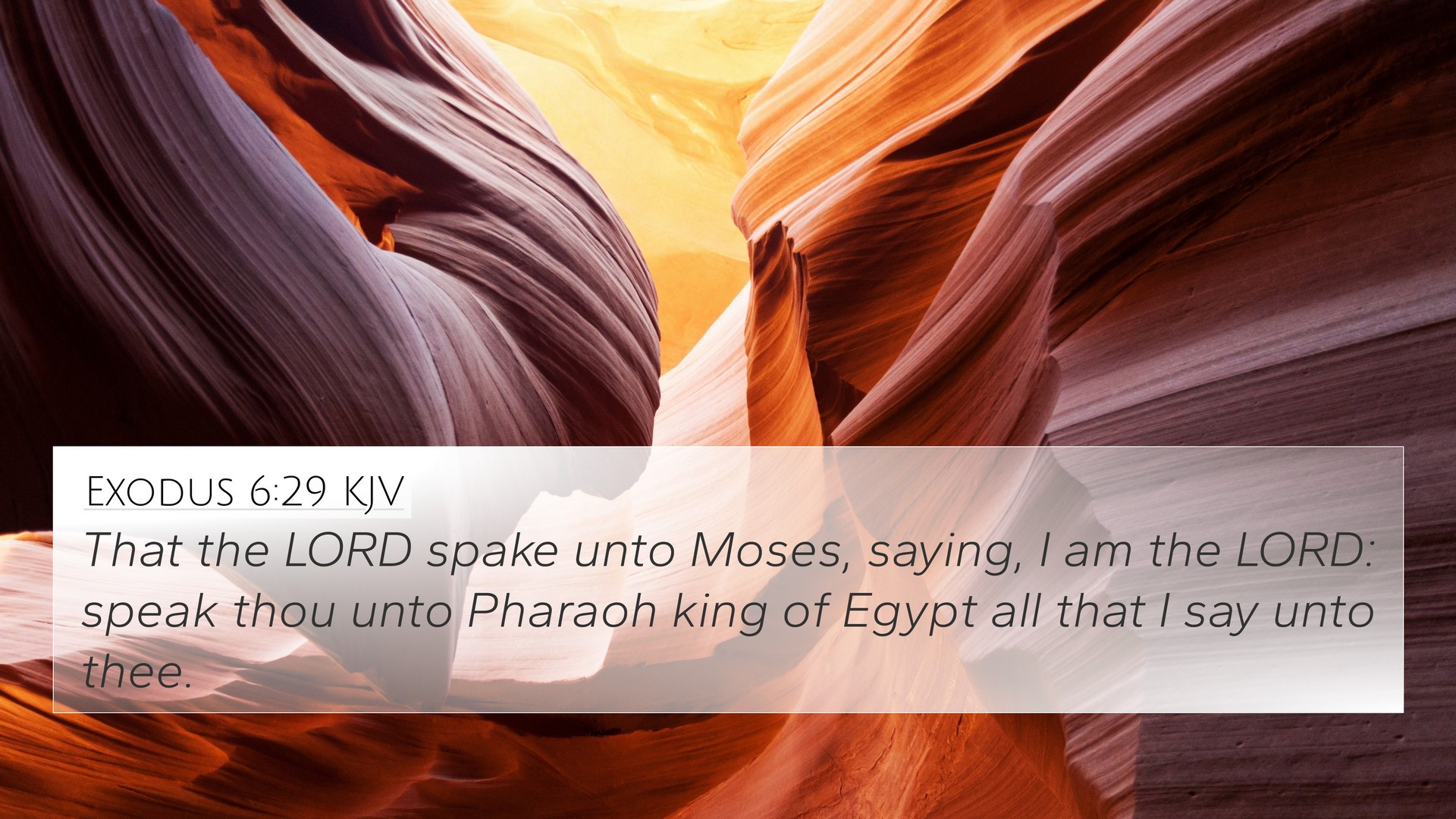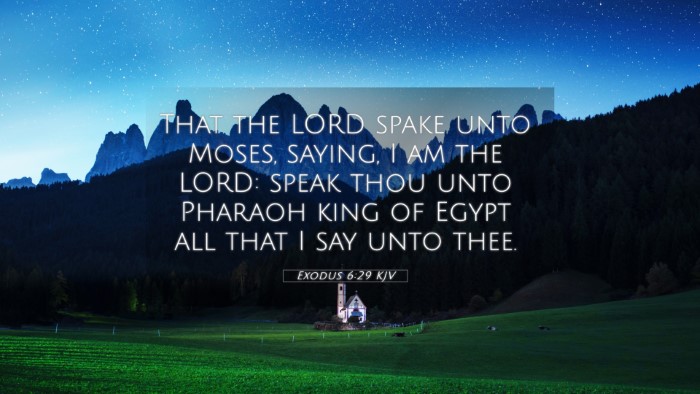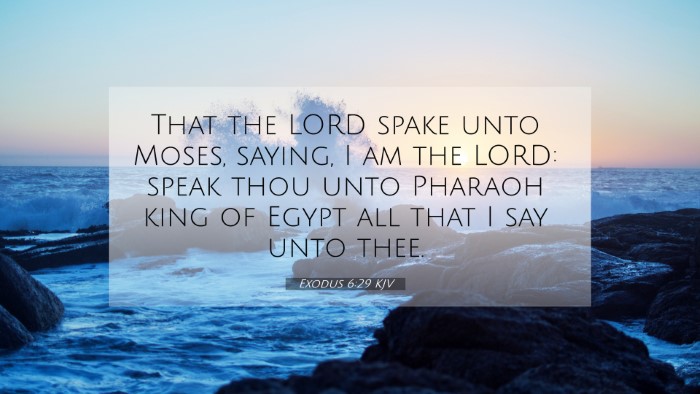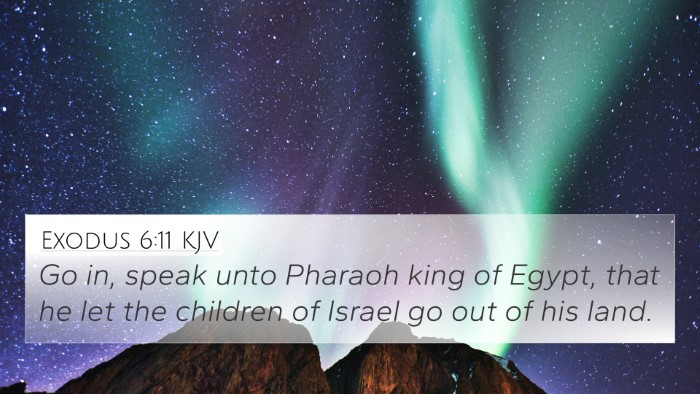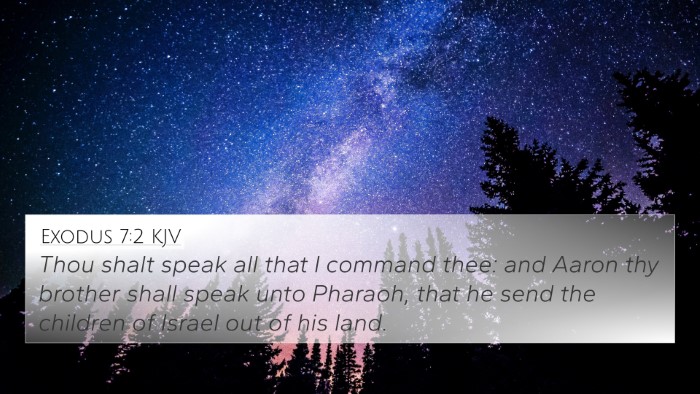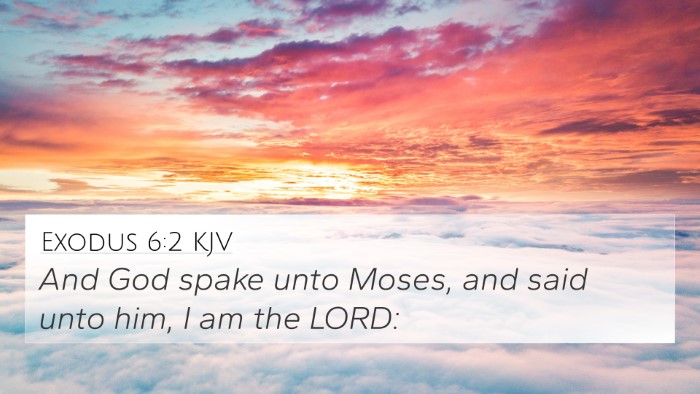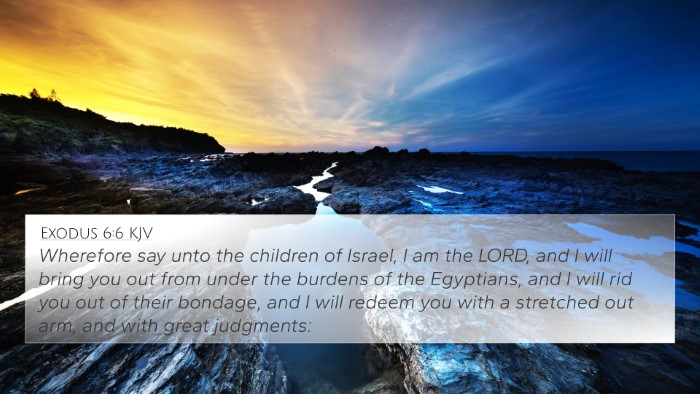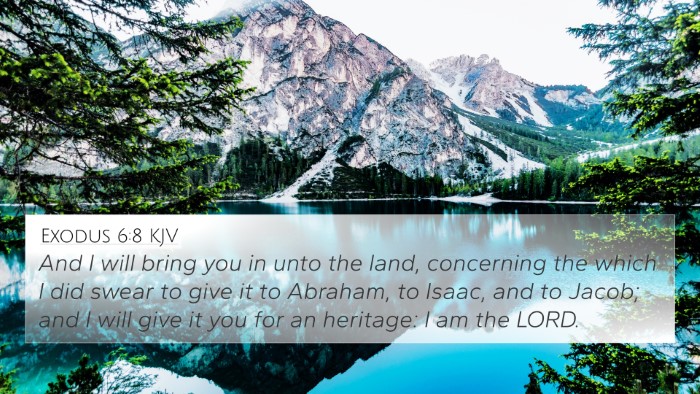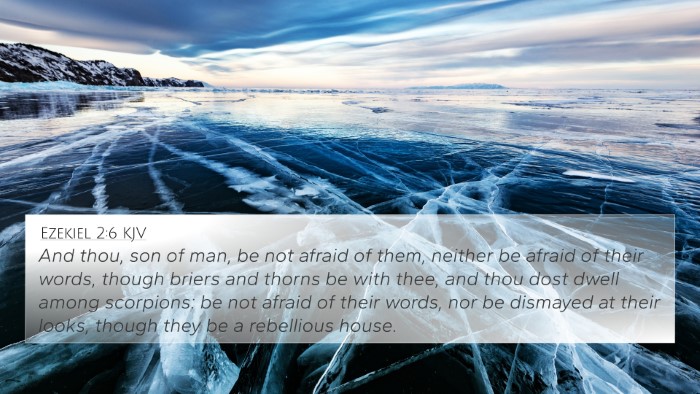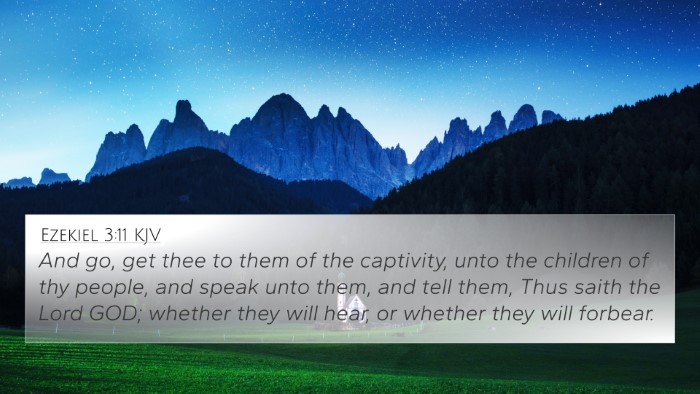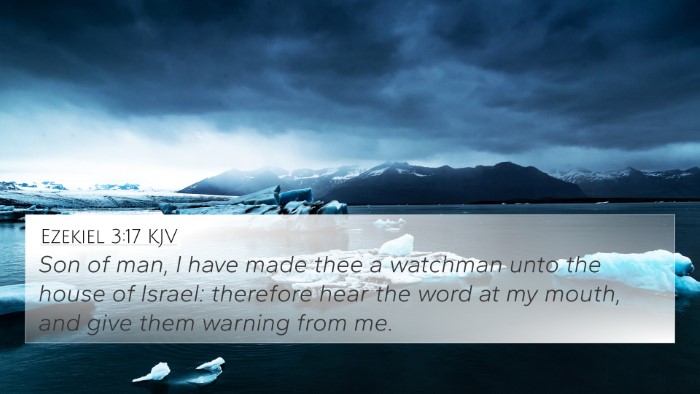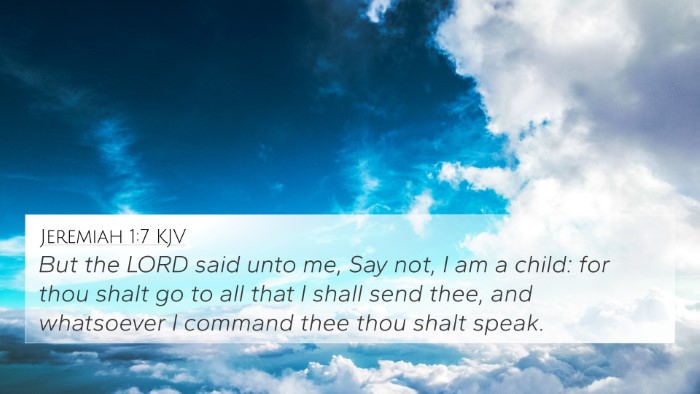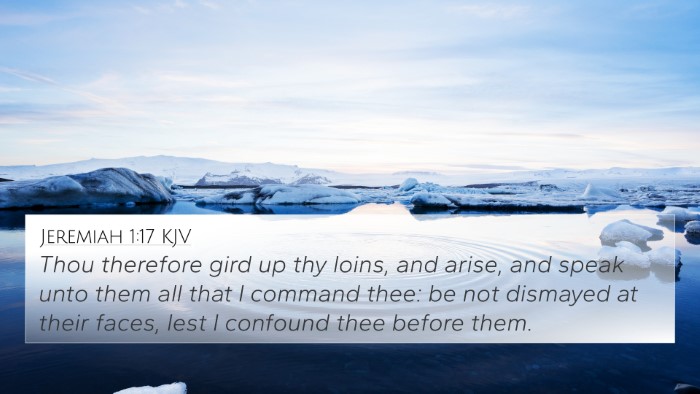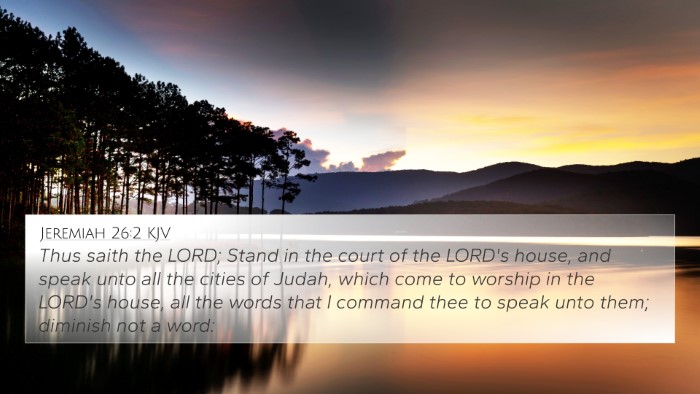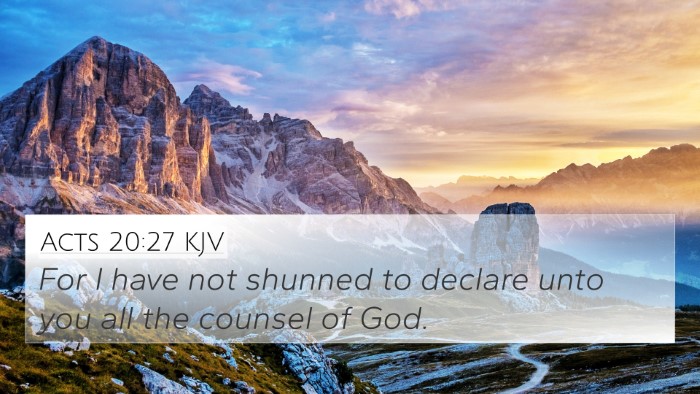Understanding Exodus 6:29
Exodus 6:29 states: "And the LORD spake unto Moses, saying, I am the LORD: speak thou unto Pharaoh king of Egypt all that I say unto thee." This verse serves as a reminder of God's authority and His directive to Moses concerning the mission to free the Israelites from bondage in Egypt. Below is a summary of insights from esteemed public domain commentaries, elucidating the meaning and significance of this verse.
Context and Overview
This verse follows God's reassurement to Moses and signifies the transition from doubt to ministry. Despite Moses' hesitations and objections, God reinforces His chosen messenger's role, indicating that speaking to Pharaoh is not just a task but a divine mission.
Matthew Henry's Commentary
Matthew Henry emphasizes that this moment reflects God presenting Himself in authority by restating His name, "I am the LORD." This name embodies God's eternal and unchanging nature, calling Moses to convey His messages with confidence. Henry points out that Moses must relay everything God instructs without altering it. The focus is on Moses' obedience and the powerful, sovereign will of God.
Albert Barnes' Commentary
Albert Barnes highlights the significance of God affirming His covenant with the Israelites through Moses' mission. Barnes notes that Pharaoh's opposition does not undermine God's purpose; rather, God equips Moses with divine strength to confront authority. He emphasizes the importance of divine communication, where all words shared with Pharaoh are divinely ordained.
Adam Clarke's Commentary
Adam Clarke elaborates on the personal character of God as He speaks directly to Moses. He notes that God’s frequent reassurances signify the importance of Moses’ role and the urgency of the task. Clarke also emphasizes a call to faith and reliance on God's promises in the mission that lies ahead.
Thematic Connections
Exodus 6:29 connects with various themes throughout the Bible including God's sovereignty, prophetic mission, and the call for obedience.
Cross-References to Exodus 6:29
- Exodus 3:10 - God’s commission to Moses to lead the Israelites out of Egypt.
- Exodus 4:12 - God promises to provide Moses the words to speak.
- Exodus 7:1 - God further empowers Moses, emphasizing his role as God's spokesperson.
- Exodus 9:1 - The Lord instructing Moses to speak to Pharaoh again showcases the ongoing nature of this mission.
- Isaiah 43:10 - The concept of being witnesses and prophets for God parallels Moses’ role.
- Jeremiah 1:7 - God's assurance to Jeremiah relates to the task of speaking for Him.
- Matthew 10:20 - Jesus assures His disciples that they will be given words from the Holy Spirit.
Understanding the Importance of Divine Communication
The directive "speak thou unto Pharaoh" underscores the importance of God's chosen servant communicating divine truth. This principle remains relevant for believers even today, as they are called to share God's message in their lives.
Keywords for Further Study
For those interested in exploring this verse and its connections further, consider these keywords:
- Bible verse cross-references
- Tools for Bible cross-referencing
- Cross-reference Bible study
- Identifying connections between Old and New Testament
- Bible verses related to prophetic missions
Concluding Thoughts
Exodus 6:29 serves as a pivotal moment illustrating God's command, the significance of speaking His word, and the assurance of His presence in the believer's mission. As you reflect on this verse, consider the greater narrative of God's covenant relationship with His people and the enduring call to be obedient to His directives.
